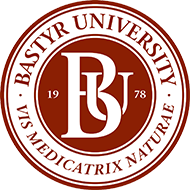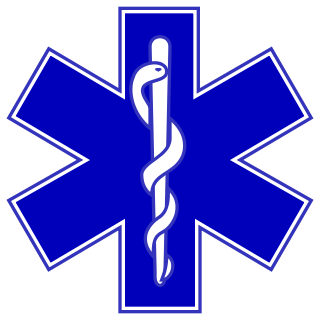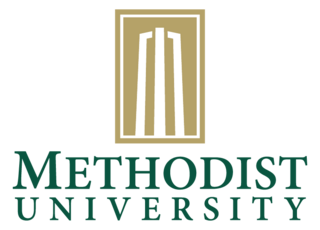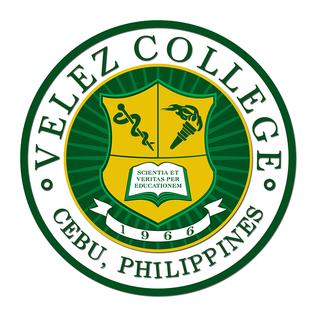Related Research Articles

A paramedic is a healthcare professional trained in the medical model, whose main role has historically been to respond to emergency calls for medical help outside of a hospital. Paramedics work as part of the emergency medical services (EMS), most often in ambulances. They also have roles in emergency medicine, primary care, transfer medicine and remote/offshore medicine. The scope of practice of a paramedic varies between countries, but generally includes autonomous decision making around the emergency care of patients.
A bachelor's degree or baccalaureate is an undergraduate degree awarded by colleges and universities upon completion of a course of study lasting three to six years. The two most common bachelor's degrees are the Bachelor of Arts (BA) and the Bachelor of Science. In some institutions and educational systems, certain bachelor's degrees can only be taken as graduate or postgraduate educations after a first degree has been completed, although more commonly the successful completion of a bachelor's degree is a prerequisite for further courses such as a master's or a doctorate.

Undergraduate education is education conducted after secondary education and before postgraduate education, usually in a college or university. It typically includes all postsecondary programs up to the level of a bachelor's degree. For example, in the United States, a student pursuing an associate or bachelor's degree is known as an undergraduate student while a student pursuing a master's or doctoral degree is a graduate student. Upon completion of courses and other requirements of an undergraduate program, the student would earn the corresponding degree. In some other educational systems, undergraduate education is postsecondary education up to and including the level of a master's degree; this is the case for some science courses in Britain and some medicine courses in Europe.

Bastyr University is a private alternative medicine university with campuses in Kenmore, Washington, and San Diego, California. Programs include naturopathy, acupuncture, Traditional Asian medicine, nutrition, herbal medicine, ayurvedic medicine, psychology, and midwifery.
A Doctor of Medicine is a medical degree, the meaning of which varies between different jurisdictions. In the United States, and some other countries, the M.D. denotes a professional degree. This generally arose because many in 18th-century medical professions trained in Scotland, which used the M.D. degree nomenclature. In England, however, Bachelor of Medicine, Bachelor of Surgery (M.B.B.S.) was used: in the 19th century, it became the standard in Scotland too. Thus, in the United Kingdom, Ireland and other countries, the M.D. is a research doctorate, honorary doctorate or applied clinical degree restricted to those who already hold a professional degree (Bachelor's/Master's/Doctoral) in medicine. In those countries, the equivalent professional degree to the North American, and some others' usage of M.D. is still typically titled Bachelor of Medicine, Bachelor of Surgery.
A Doctor of Pharmacy is a professional doctorate in pharmacy. In some countries, it is a proficient graduate degree to practice the profession of pharmacy or to become a clinical pharmacist. In many countries, people with their Doctor of Pharmacy are allowed to practice independently and can prescribe drugs directly to patients. A PharmD program has significant experiential and/or clinical education components in introductory and advanced levels for the safe and effective use of drugs. Experiential education prepares graduates to be practice-ready, as they already have spent a significant amount of time training in areas of direct patient care and research.
The Bachelor of Science in Nursing also known in some countries as a Bachelor of Nursing (BN) or Bachelor of Science (BS) with a Major in Nursing is an academic degree in the science and principles of nursing, granted by an accredited tertiary education provider. The course of study is typically three or four years. The difference in degree designation may relate to the amount of basic science courses required as part of the degree, with BScN and BSN degree curriculums requiring completion of more courses on math and natural sciences that are more typical of BSc degrees and BN curriculums more focused on nursing theory, nursing process, and teaching versions of general science topics that are adapted to be more specific and relevant to nursing practice. Nursing school students are generally required to take courses in social and behavioral sciences and liberal arts, including nutrition, anatomy, chemistry, mathematics, and English. In addition to those courses, experience in physical and social sciences, communication, leadership, and critical thinking is required for a bachelor's degree. BSN programs typically last 2–4 years. Someone who holds a BSN can work in private or public medical and surgical hospitals, physician's offices, home health care services, and nursing facilities. Having a BSN can result in more opportunities and better salary than just an associate degree.

Uniformed Services University of the Health Sciences (USU) is a health science university and professional school of the U.S. federal government. The primary mission of the school is to prepare graduates for service to the U.S. at home and abroad as uniformed health professionals, scientists and leaders; by conducting cutting-edge, military-relevant research; by leading the Military Health System in key functional and intellectual areas; and by providing operational support to units around the world.

A paramedic is a healthcare professional, providing pre-hospital assessment and medical care to people with acute illnesses or injuries. In Canada, the title paramedic generally refers to those who work on land ambulances or air ambulances providing paramedic services. Paramedics are increasingly being utilized in hospitals, emergency rooms, clinics and community health care services by providing care in collaboration with registered nurses, registered/licensed practical nurses and registered respiratory therapists.

In the United States, the paramedic is an allied health professional whose primary focus is to provide advanced emergency medical care for patients who access Emergency Medical Services (EMS). This individual possesses the complex knowledge and skills necessary to provide patient care and transportation. Paramedics function as part of a comprehensive EMS response under physician medical direction. Paramedics often serve in a prehospital role, responding to Public safety answering point (9-1-1) calls in an ambulance. The paramedic serves as the initial entry point into the health care system. A standard requirement for state licensure involves successful completion of a nationally accredited Paramedic program at the certificate or associate degree level.

Methodist University is a private university that is affiliated with the North Carolina Annual Conference of the United Methodist Church and located in Fayetteville, North Carolina. It is accredited by the Southern Association of Colleges and Schools Commission on Colleges.

Texas Tech University Health Sciences Center El Paso is a public university focused on the health sciences and located in El Paso, Texas. It was founded in 1969 as a branch campus of the Texas Tech University Health Sciences Center and became a separate institution in 2013.
A Paramedic in Australia is a health care professional who holds a minimum of a Bachelor's Degree in Paramedicine and is registered with the Paramedicine Board of Australia via the Australian Health Practitioners Regulation Agency (AHPRA) As of December 2021, there are over 22,500 registered paramedics in Australia, of which approximately 70% (15,750) work for a jurisdictional service, and of which 47% of which are female. Paramedics in Australia may undergo further training and complete a Master's Degree to specialise in either Intensive Care or Primary Care medicine.
A professional degree, formerly known in the US as a first professional degree, is a degree that prepares someone to work in a particular profession, practice, or industry sector often meeting the academic requirements for licensure or accreditation. Professional degrees may be either graduate or undergraduate entry, depending on the profession concerned and the country, and may be classified as bachelor's, master's, or doctoral degrees. For a variety of reasons, professional degrees may bear the name of a different level of qualification from their classification in qualifications, e.g., some UK professional degrees are named bachelor's but are at master's level, while some Australian and Canadian professional degrees have the name "doctor" but are classified as master's or bachelor's degrees.
Medical school in the United States is a graduate program with the purpose of educating physicians in the undifferentiated field of medicine. Such schools provide a major part of the medical education in the United States. Most medical schools in the US confer upon graduates a Doctor of Medicine (MD) degree, while some confer a Doctor of Osteopathic Medicine (DO) degree. Most schools follow a similar pattern of education, with two years of classroom and laboratory based education, followed by two years of clinical rotations in a teaching hospital where students see patients in a variety of specialties. After completion, graduates must complete a residency before becoming licensed to practice medicine.
The Monash University Faculty of Medicine, Nursing and Health Sciences is an Australian healthcare provider. It comprises 10 schools, teaching and clinical centers and research institutes. The faculty offers undergraduate, postgraduate and professional education programs in medicine, nursing and allied health, and is a member of the M8 Alliance of Academic Health Centers, Universities and National Academies.
The basic requirement for pharmacists to be considered for registration is often an undergraduate or postgraduate pharmacy degree from a recognized university. In many countries, this involves a four- or five-year course to attain a bachelor of pharmacy or master of pharmacy degree.

The Liceo de Cagayan University (LDCU) is a private non-sectarian basic and higher education institution in Cagayan de Oro, Philippines. It was founded in 1955 by Rodolfo N. Pelaez of Cagayan de Oro and his wife Elsa P. Pelaez of Cebu City.

Velez College is a private educational institution in Cebu City, Cebu, widely known for offering allied health degrees. It was founded by Dr. Jacinto Velez Sr. in 1952, who was then chairman of the board of trustees of Cebu (Velez) General Hospital School of Nursing. It was incorporated under the Philippine Corporation Law on March 28, 1966. The institution has four component colleges: College of Arts and Sciences, College of Medical Technology, College of Nursing, and College of Physical Therapy and Occupational Therapy.